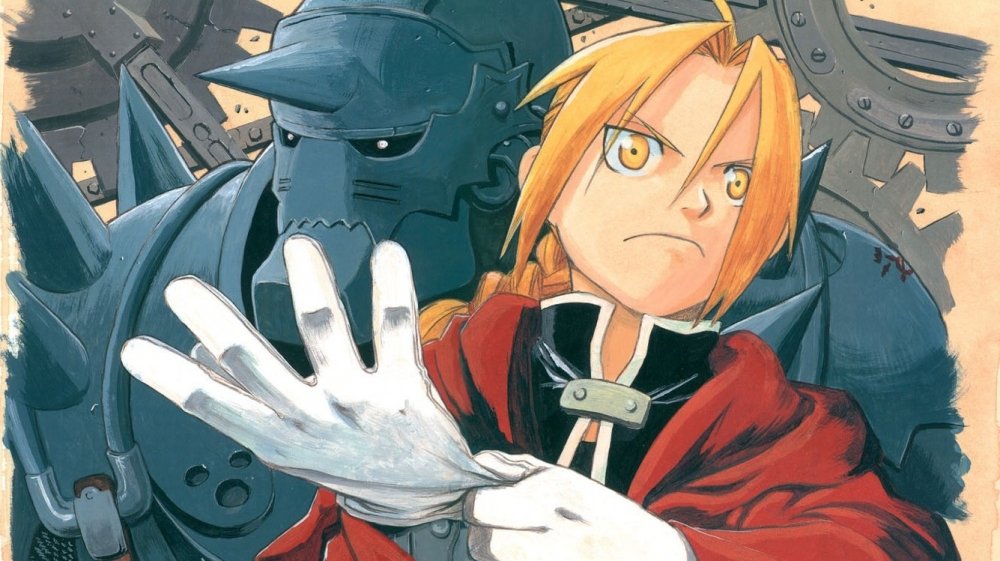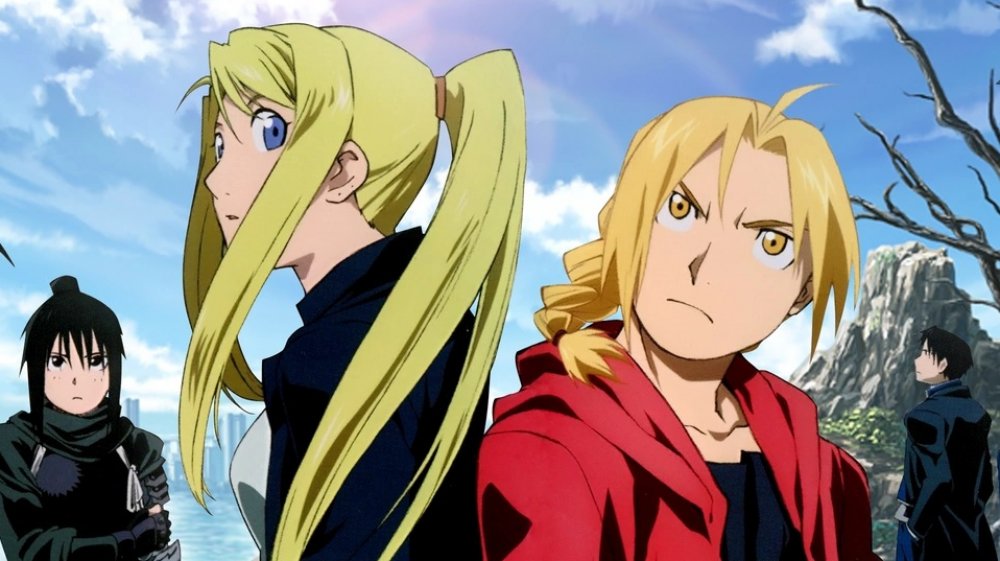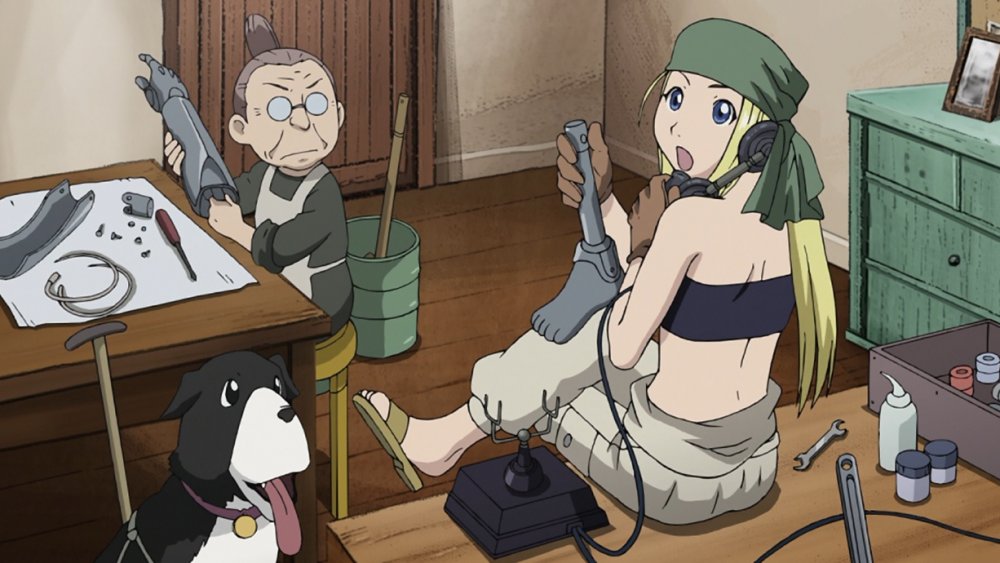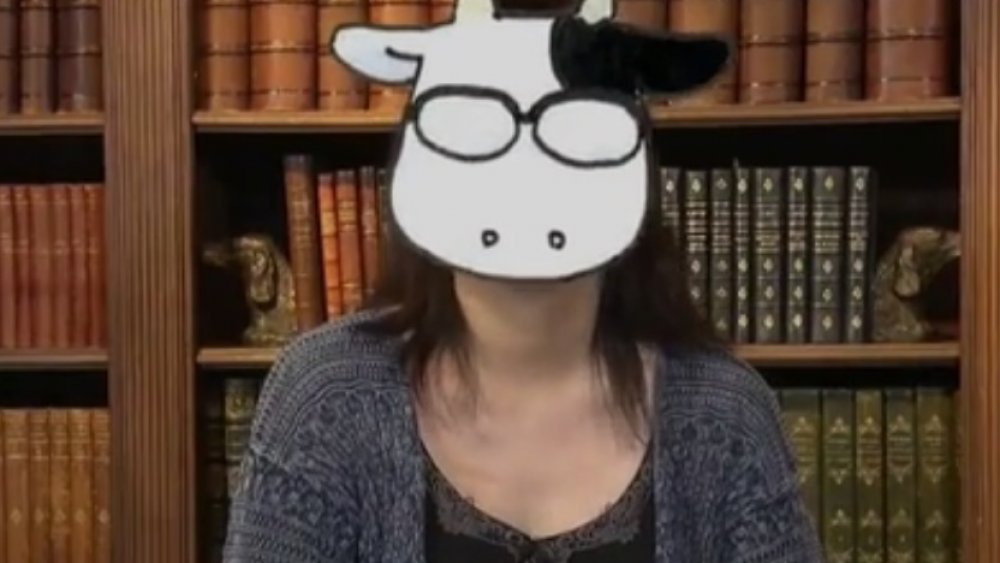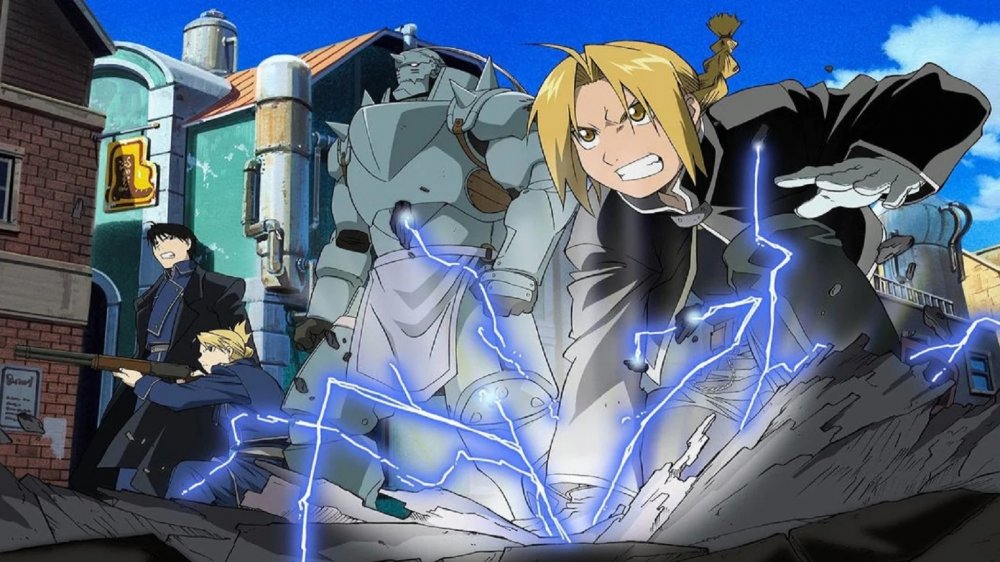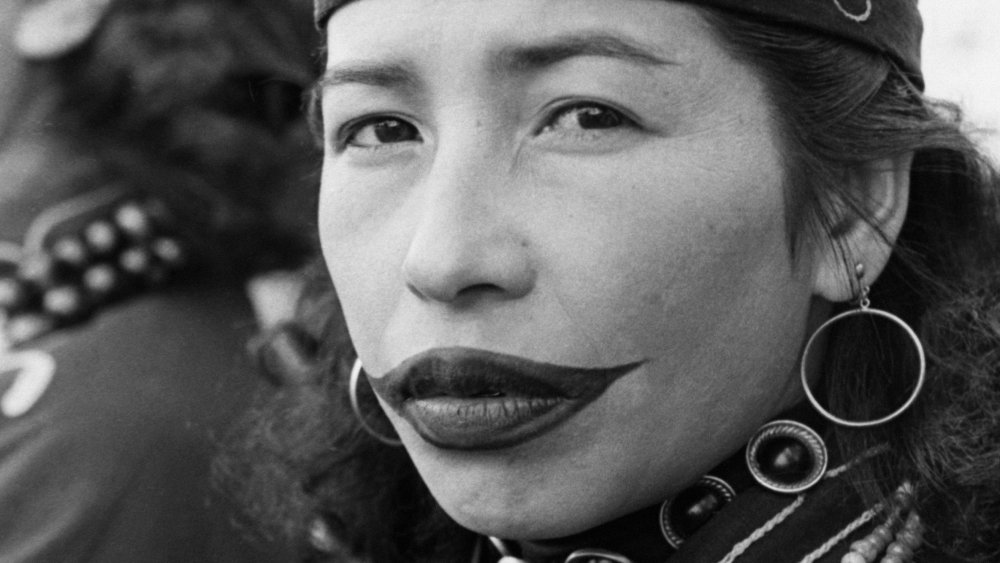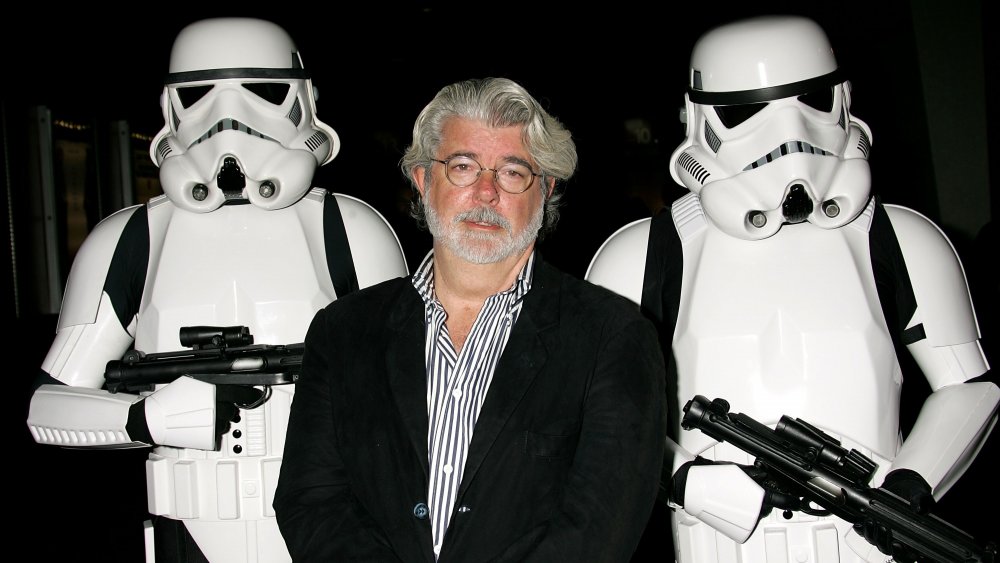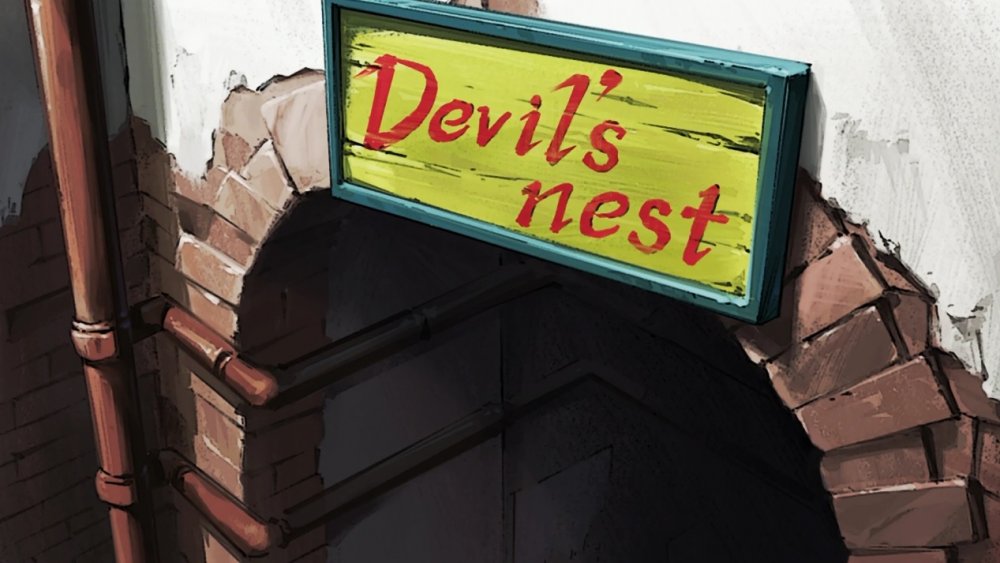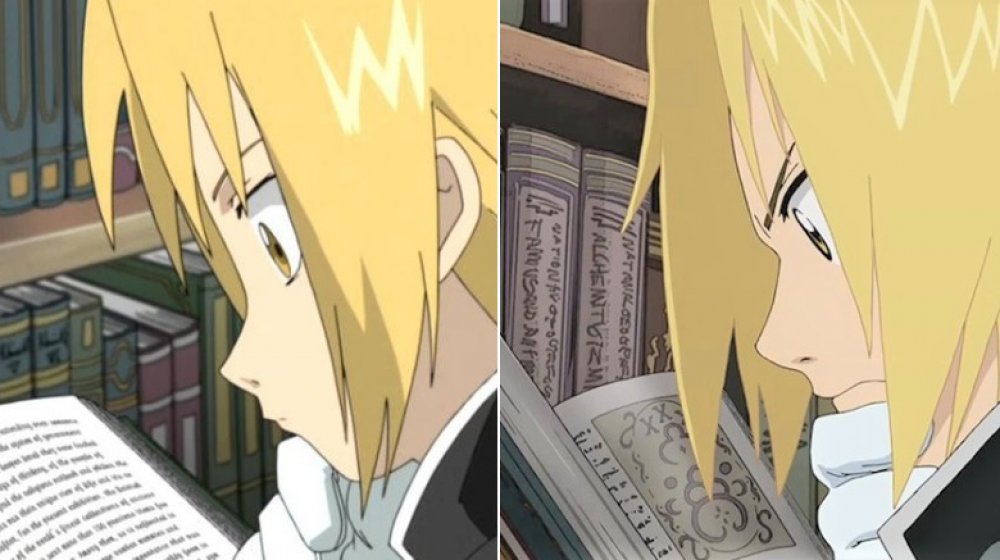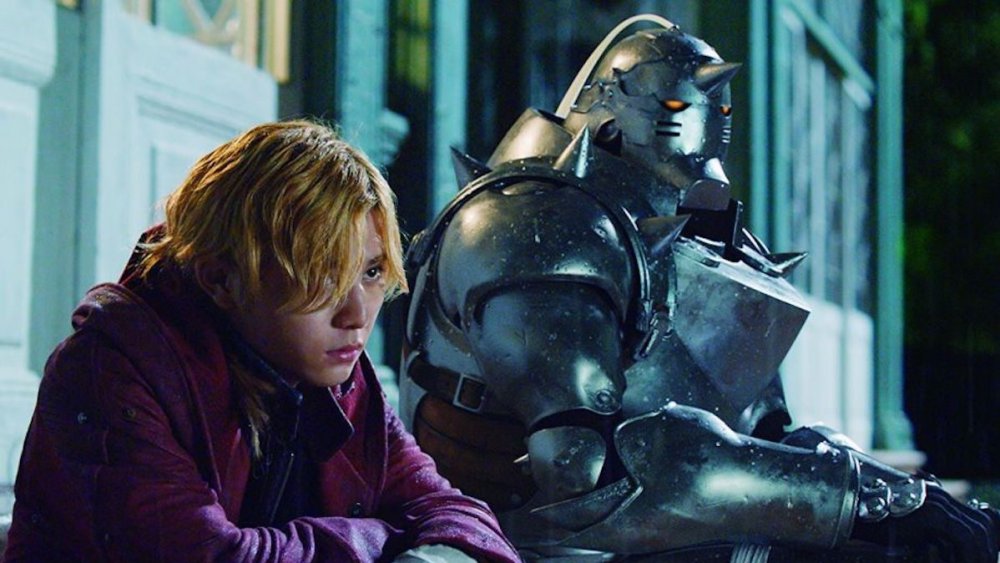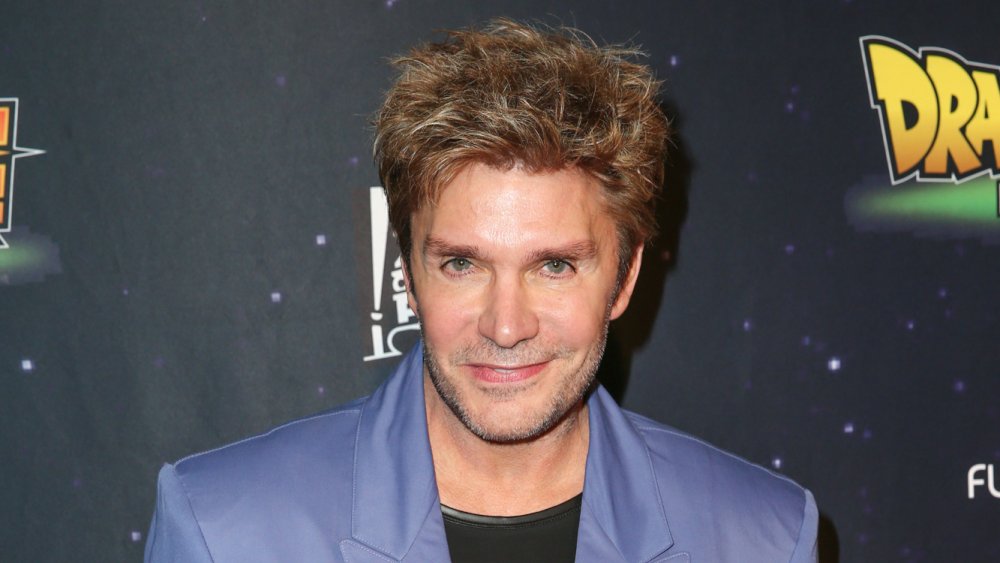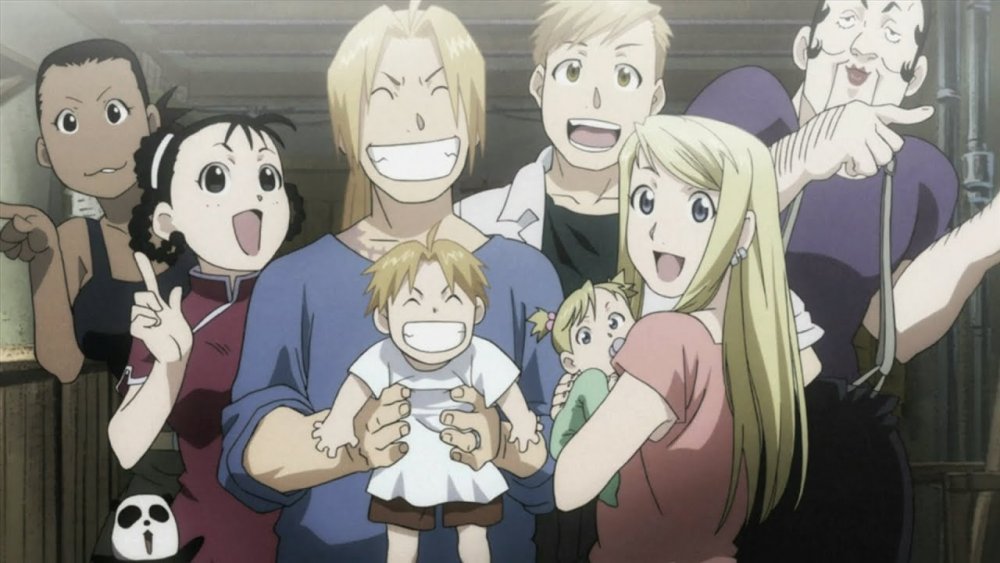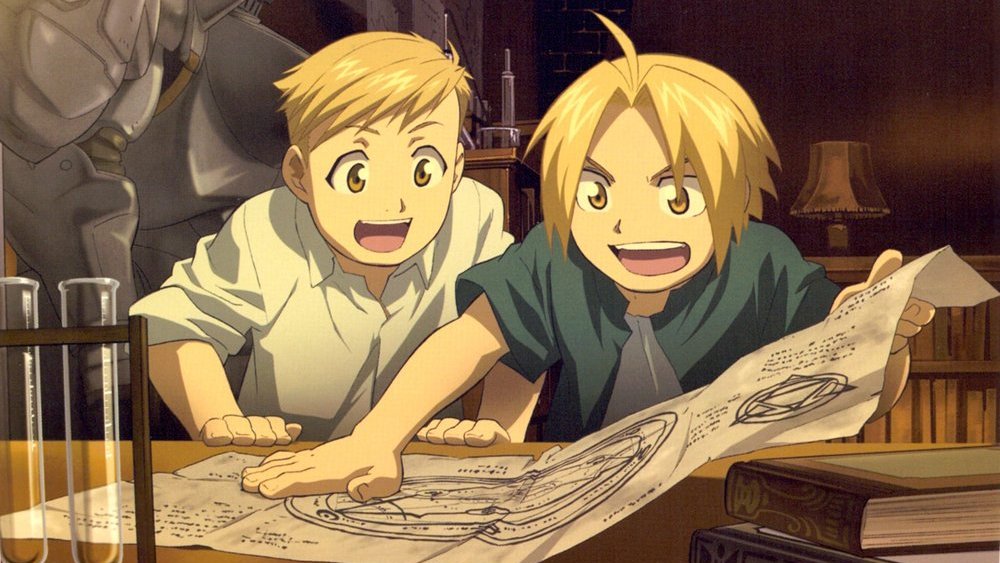The Untold Truth Of Fullmetal Alchemist
To call 2009's Fullmetal Alchemist: Brotherhood a highly rated anime would be a drastic understatement — the shonen series has been ranked first in the MyAnimeList Top Anime table for years now. At the time of this writing, the show has a seemingly untouchable score of 9.23 on what is essentially the IMDb of anime. Brotherhood was a huge success for Bones, which was very familiar with the property by this point. The studio also made 2003's Fullmetal Alchemist, an earlier adaptation of the manga that did very well, especially in the States. The series won five awards at the inaugural American Anime Awards in 2007, including Best Long Series, Best Cast, and Best Actor. Both versions owe their success to one person: Hiromu Arakawa.
Arakawa moved to Tokyo in 1999 with dreams of becoming a manga illustrator, dreams that she managed to realize almost immediately. She quickly got her foot in the door at Square Enix, landing a role as an assistant on its Magical Circle Guru Guru series. She took charge of a few shorts between then and 2001, when the manga that would make her a household name debuted. The 2000s became the decade of Fullmetal Alchemist, which was published in Monthly Shonen Gangan until 2010. The property remains just as popular today, but how much do you know about this Japanese pop culture phenomenon? This is the untold truth of Fullmetal Alchemist.
The creator uses a fake name
The creator of Fullmetal Alchemist pulled a J.K. Rowling when she moved to Tokyo to pursue a career as a mangaka. According to CrunchyRoll, Arakawa started up a doujin group and began submitting four-panel comics to the now defunct Gamest magazine using the pen name Edmund Arakawa. When she went pro she chose a far subtler alias — she decided to publish under Hiromu Arakawa instead of her birth name Hiromi Arakawa. It was the second time she'd changed her name to make herself appear male, but she couldn't keep her secret for long. When Fullmetal Alchemist became a hit, fans discovered that the writer was actually female. It didn't halt Fullmetal's rise. Arakawa's manga picked up the Shogakukan Manga Award and the Seiun Award on its way to selling more than 70 million copies.
Her success has helped pave the way for the likes of Kekkaishi creator Yellow Tanabe and Shinobu Ohtaka, the woman behind Magi. Speaking to French magazine Animeland in 2013, Arakawa reminded readers why they should never judge a manga by the mangaka's gender. "Some men are really able to imagine sensitive and complex characters, while some women are able to create sometimes violent action scenes," she said. "Nowadays, each writer has their own speciality. It doesn't matter if they're a man or a woman."
The origin of Fullmetal Alchemist's hardworking women
If you're a Fullmetal Alchemist fan, you'll know all about Equivalent Exchange, the first law of alchemy in Arakawa's world. "Humankind cannot gain anything without first giving something in return," Alphonse Elric explains in the opening narration of the 2003 anime series. "To obtain, something of equal value must be lost." What you might not know is that Arakawa came up with this concept when she was growing up on her family's dairy farm in Hokkaido. "The more you love your animals, the more they give it back to you," she told Animeland. "Equivalent exchange is based on the energy you'll deploy to realize the task that was assigned to you. In a way, that exchange gives rhythm to my life."
It wasn't just the animals that inspired her, either. Arakawa grew up surrounded by a number of hardworking women on the farm, and that also shows pretty clearly on the page. "Our family motto is 'Those who don't work, don't deserve to eat,'" the mangaka revealed in Fullmetal Alchemist volume 12 (via The Mary Sue). "Everyone has to work hard to make ends meet, including women and kids. That's the reason there are so many working women in Fullmetal." Arakawa's story has been praised as a rare example of shonen that doesn't relegate the female lead to a nurse/healer role — the wrench-wielding Winry Rockbell is an automail mechanic and total gearhead.
The creator is a recluse who likes cows
The world of manga is full of eccentric characters, and Arakawa is definitely one of them. The creator of Fullmetal Alchemist is known for being something of a recluse, avoiding the spotlight whenever she can. A couple of pictures of the mangaka have been circulated online, but the images are such a low quality that it's hard to make out any distinguishing features. When Arakawa draws her author portrait, she turns herself into an anthropomorphic cow, a nod to her farming past but also a way of keeping her identity hidden. So what does she do for TV interviews? Simple — they edit in a cow face after the fact.
"Right now, my face is cow, but I am human," she assured viewers when she gave an interview to promote an exhibition showcasing her artwork in 2017. It was her first ever TV appearance, and she hasn't exactly made a habit of it since. To this day the vast majority of her fans have no idea what she actually looks like. In fact, many have mistakenly identified voice actress Romi Paku as Arakawa, because she often represents the Fullmetal Alchemist creator at events. "Even in Japan, I never attend public events," Arakawa told Animeland.
Fullmetal Alchemist was inspired by B-movies
The story of Fullmetal Alchemist begins when Edward Elric and his younger brother Alphonse attempt to use alchemy to bring their deceased mother back to life. Human transmutation is alchemy's biggest taboo, and the Elric siblings suffer dearly for breaking it — Ed loses his left leg during their failed resurrection attempt, and his little brother is sucked into the Gate of Truth. He's forced to sacrifice his right arm (both limbs are later replaced with automail) in exchange for Al's soul, which he quickly binds to an empty suit of armor using a blood seal. We're then taken on a journey with the Elrics as they search for the philosopher's stone, which they believe will help restore their bodies.
If it sounds like a plot from a B-movie, that's because those kind of films directly inspired Arakawa. In the foreword of the first ever volume of Fullmetal Alchemist, the author and artist revealed that her love of B-movies made her want to write something that sucked people in with its quirkiness. "I love the way they make me think 'What the hell is this? That's crazy!' Yet still draw me in so that I watch the whole thing," she said (via The Mary Sue).
The creator has a dark family history
It took place eight years before the main story commences, but the Ishval Civil War still casts a huge shadow over everyone in Fullmetal Alchemist. A deadly conflict broke out in the region, which had previously been annexed by powerful neighbor Amestris. The latter sent State Alchemists to the front line and a genocide took place. A revenge-obsessed survivor named Scar became one of the most popular Fullmetal Alchemist characters, despite some people taking issue with his portrayal, and the portrayal of minority characters in general.
Some believe the Ishval Civil War (or the Ishvalan War of Extermination) is partly based on Germany's massacre of the Herero, cattle herders living in what is now Namibia who were killed for their land. Arakawa's true inspiration came from closer to home. She revealed to Newtype USA that her own ancestors displaced the native people of Hokkaido when it was colonized by the Japanese.
"My ancestors were farmers and homesteaders who displaced Ainu and stole their land from them," she said. "But ironically enough, some of my own relatives have Ainu blood in them. That seems complicated, but it's just an everyday fact of life to have neighbors of differing ethnicity. I think the truly serious problems in this world are when people don't make any effort to learn about these everyday situations, when they turn away from them or view them from only a single perspective."
Arakawa is a big George Lucas fan
Arakawa might love B-movies, but they're not the only thing she watches. The mangaka is known to be an admirer of Hollywood movies, particularly ones that came from the mind of George Lucas. She reportedly loves the Indiana Jones films, and she's made her feelings on Star Wars publicly known — in one Fullmetal Alchemist afterword, Arakawa animated herself (in her bespectacled cow form, of course) bemoaning the fact that Padmé Amidala fell for Anakin Skywalker, who would of course go on to become Darth Vader. It's not that Arakawa has anything against Darth Vader. Quite the opposite, in fact.
According to Sankichi Hinodeya, who was one of the Arakawa's assistants on Fullmetal Alchemist, the mangaka tried to purchase a scale replica of the iconic Star Wars villain at one stage, but she was forced to give up on the idea when she discovered just how much the statue was going to cost. The Mary Sue once described her as "quite the geek" and a "hardcore fan of Star Wars" in a profile piece, but this was apparently one piece of memorabilia too far.
When Arakawa spoke to now defunct anime mag Newtype USA for its January 2006 edition, she revealed that she watches films from all over the world in her spare time, but she's become especially fond of the "heart-pounding fun and simpleminded energy of Hong Kong and Hollywood films."
Fullmetal Alchemist Easter eggs you might have missed
Arakawa created a couple of shorts before Fullmetal Alchemist sent her into the stratosphere, and one of those shorts is routinely referenced in her most famous work — in fact, parts of 1999's Stray Dog are straight up recycled in Fullmetal Alchemist, including some terminology and several big plot devices. Perhaps most notably, Stray Dog features chimaeras, human-dog hybrids created by the military. Similar creatures feature in Fullmetal Alchemist. There are plenty of smaller nods and Easter eggs for keen-eyed Arakawa fans to chuckle over, too.
Stray Dog is a brand of liquor in the Fullmetal Alchemist universe (it's on sale in shady pub the Devil's Nest) and the term "dog of military" is often thrown at Edward Elric, being a State Alchemist and all. Edward has the same braid as a Stray Dog character, and the same golden eyes, too. It's hard not to look at Stray Dog as a forerunner to Fullmetal Alchemist, but in truth most of Arakawa's early work contains traces of it somewhere. Four-chapter short Demons of Shanghai features character designs that are so similar to Fullmetal Alchemist that pranksters have been able to pull them off as spoilers, tricking manga readers.
What's the difference between Fullmetal Alchemist and Fullmetal Alchemist: Brotherhood?
Those getting into Fullmetal Alchemist for the first time usually ask this question before they do anything else. Is 2009's Fullmetal Alchemist: Brotherhood a sequel to 2003's Fullmetal Alchemist, or is it a remake? It's actually neither of those things. When Fullmetal Alchemist was first adapted into an anime in 2003, the manga was still relatively young. Because there was only so much story they could adapt, the producers created their own, with Arakawa's full blessing. "I think that there is no need [for them] to worry about the original work separately," the mangaka said when asked if it was best to leave the anime to the animators. "I said, 'Please do whatever you want.' I am the type that do not care about how the character looks visually as long as the [essence of the] character is expressed."
The 2003 anime was considered a success, but by 2009, Arakawa's manga was nearing its conclusion and there were calls for a new, more faithful adaptation. That adaptation was Fullmetal Alchemist: Brotherhood (Hagane no Renkinjutsushi: Fullmetal Alchemist in Japan), which follows the source material from beginning to end. According to The Mary Sue, Arakawa let Brotherhood's director in on the ending she had in store for the manga so they could remain in sync. The final episode aired just a few weeks after the last chapter of the manga dropped in July 2010.
Arakawa liked the live action version, critics didn't
It's no secret that Hollywood rarely gets it right when it comes to adapting anime for the big screen, but it might surprise you to learn that Japanese filmmakers are also pretty terrible at it. The 2015 live-action adaptation of Attack on Titan and its sequel, subtitled End of the World, both failed to impress critics, as did the Fullmetal Alchemist movie. Released in 2017, the film was subject to some controversy. American producers have been accused of whitewashing anime adaptations on several occasions, and the same thing happened in reverse when Fullmetal Alchemist was made — the fact that the setting and the characters are European by design led a number of fans to argue that white actors should have been cast over Japanese ones.
Parts of the movie were shot on location in Europe, and that was apparently enough authenticity for Arakawa, who very much enjoyed this latest take on her magnum opus. The creator was particularly happy with the performance of Ryosuke Yamada in the role of Ed. "There was a hasty desperation in the running, and he did it in a comical way just like the manga," said Arakawa, who was shown the script but had no involvement in the making of the movie. "Ed's comical but great physicality was on full display in the opening action scene, and I thought, 'He is as good as I expected, this guy!'"
Ed's voice actor has been accused of sexual harassment
When they dubbed the live action Fullmetal Alchemist movie in English, they brought in veteran voice actor Vic Mignogna, the man who voiced Edward Elric in both of the anime adaptations. Mignogna has a long and distinguished career in voice acting, and he's played some big characters over the years, but none can compare to Ed. "I am honored beyond words to be a part of Fullmetal Alchemist," Mignogna told Red Carpet News in 2012. "I couldn't love Ed more, he's been one of my favorite roles to play." Mignogna was hugely respected at the time, but his reputation has been tarnished in the years since.
In 2019, io9 launched an investigation into claims of sexual harassment that had been made against Mignogna. Dozens of industry professionals (from Mignogna's fellow voice actors to cosplayers and convention employees) painted "a picture of a 56-year-old man who aggressively hugs, grabs, touches, kisses, and propositions women — often without asking for their consent." According to voice actor Jamie McGonnigal, Mignogna's behavior has been anime's worst kept secret for years.
"Have you heard of the missing stair analogy?" McGonnigal asked io9. "It's basically what happens when many folks in an industry know about a certain person, and warn everyone about that person, kind of quietly... You tell the people that you know to skip that stair because it's broken... That's what it's been like for upwards of 15 years. People just know about Vic."
Arakawa was 'relieved' when Fullmetal Alchemist ended
When the final chapter of Fullmetal Alchemist hit shelves in 2010, it was the end of an era for Square Enix's Monthly Shonen Gangan magazine, the manga's home since its inception in 2001. Arakawa had been dreading the day, but when the time finally came, she felt a great sense of relief. "When we finished the manga, I was surprised because I had been drawing this story for nine years and I was convinced that in the end, I would be sad, as in a break up," she told Animeland. "When I submitted the last chapter, I was actually relieved. Not because I was glad it was over, but because I had the conviction I had told everything I wanted to."
The mangaka recalled the moment that she gave the final pages to her publisher during her interview with the French anime mag, reminiscing about the grilled beef they ate as they celebrated their achievement. "We had nice drinks, nice food, and I had a feeling of satisfaction," Arakawa said. "As if my children just graduated." Fullmetal Alchemist will always be her baby, but Arakawa also has three actual children with her husband. She gave birth to her third child in 2014, announcing the arrival with an illustration of her iconic cow watching over a baby with the caption "Human Transmutation Accomplished" underneath.
What's the true meaning of the story?
On the surface, Fullmetal Alchemist isn't your typical thinking person's anime. Conversations about morality and philosophy aren't usually sparked by shonen stories, yet Arakawa's manga and its various adaptations have inspired much debate. The creator asks big questions of her audience, who are left to judge some of the more morally ambiguous characters for themselves (discussions about Scar's status are still raging years after Fullmetal Alchemist ended). When Arakawa spoke to Newtype USA, she revealed that she became "more attracted to the philosophical aspects of [alchemy] than the practical ones" as she conducted her research, which is why Fullmetal Alchemist requires a good deal of thought between the battle scenes.
Arakawa touched on a number of themes over the years, but the one that remained a constant throughout Fullmetal Alchemist is family. "The series starts off with the Elric brothers attempting to revive their dead mother, and they do that because they long for the warmth of family," she said. The boys ultimately form a surrogate family around them, and as far as Arakawa is concerned, showing her readers that we're all one big family anyway was always the endgame. "I think the story's eventual destination might be an understanding of family, in a larger sense of the world."
